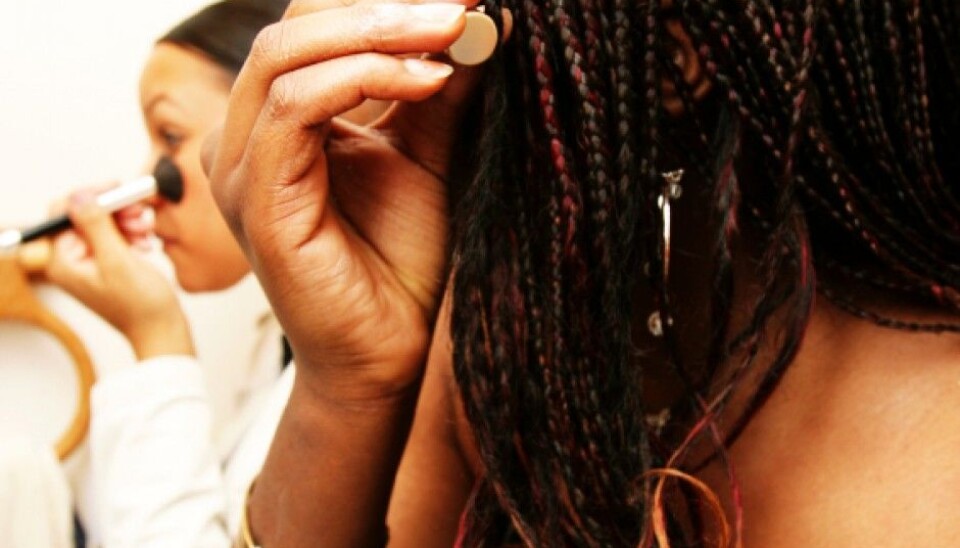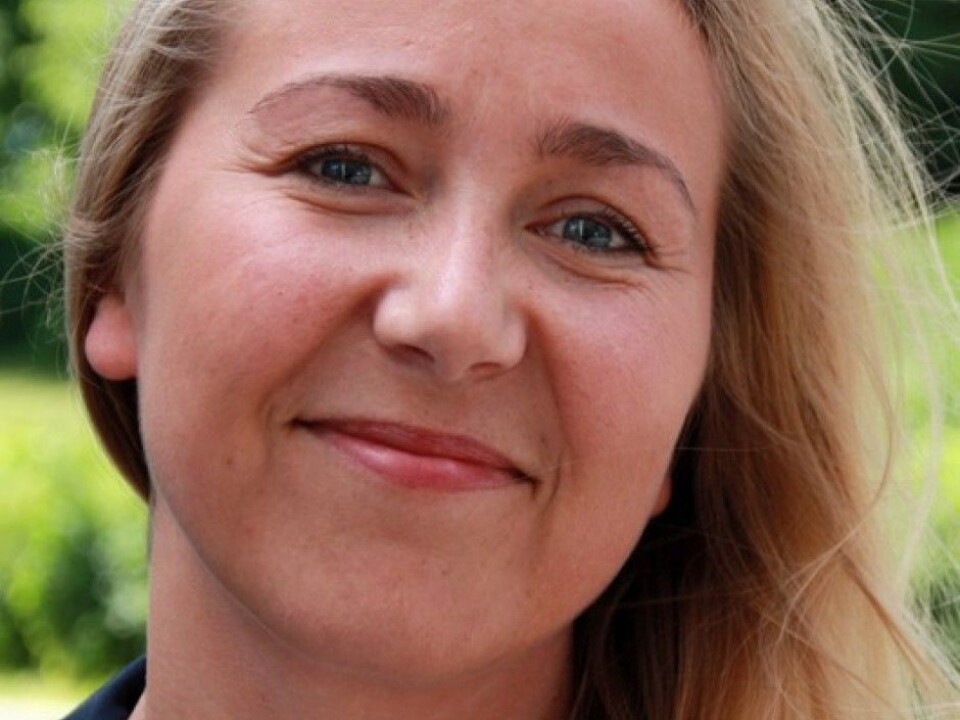An article from KILDEN Information and News About Gender Research in Norway

Norwegian ban on buying sex affects immigrant women
The police are very hard on some groups, while they tolerate others. This means that prostitution politics in practice are selective, they primarily affect immigrant women. Do the police actually fight prostitution as such?
Denne artikkelen er over ti år gammel og kan inneholde utdatert informasjon.
With increased focus on human trafficking, fighting prostitution has become a higher status task in the police force. But the police do not go after prostitution as such; they go after prostitutes with an immigrant background.
The police primarily direct their attention towards certain immigrants, West Africans and Eastern Europeans in particular as well as Asian women who work in the indoor market. They presume that the women from these areas are particularly subject to coercion.
“When some groups are at the centre of attention, others are necessarily given less priority”, says sociologist Synnøve Jahnsen.
Ban on buying sex is unclear
According to Jahnsen it is not clear who the ban on buying sex is meant to protect. Its advocates’ successful strategy was to link their arguments to the fight against human trafficking.

As a consequence, the line between prostitution in general and human trafficking in prostitution is blurred.
“Is it meant to protect all prostitutes, those who are subjected to human trafficking, or the entire Norwegian society?", asks Jahnsen.
According to her, it was precisely the lack of clarity that enabled the sex purchase law to be passed in 2008.
It allows for great deals of interpretation among those who implement it: social workers and the police.
Change of attitude in the police force
In her recent PhD thesis Jahnsen has studied the work against prostitution and human trafficking in the Norwegian police force. Through extensive field work she has followed special units in Oslo and Bergen and observed how they work.
She has also interviewed people within the police force.
Her study shows how the work against prostitution has changed from being given relatively little priority – often referred to as women’s work – to becoming a type of fight against crime which gives internal status and recognition.
“A change of attitudes has taken place in the Norwegian police force. Exploitation in the prostitution market is taken seriously. It is no longer acceptable to joke about it,” says Jahnsen.
“This is however not a direct consequence of the sex purchase law. The change of attitudes comes with the focus on prostitution as a part of the fight against organised crime.”
Neither the professionalisation of the police as a result of training and the establishment of special units are a consequence of the sex purchase ban, according to Jahnsen.
Moreover, her research shows that despite the ban on buying sex Norwegian police do not apply other methods in order to fight prostitution than European countries without such a law.
One example is “Operation homeless” led by the Oslo police. By striking known brothels and continuously forcing them to change place of residence, they hope to prevent prostitution from being able to take place. This method is used in other European countries as well.
A report by Fafo Institute for Applied International Studies has shown that as a result of “Operation homeless”, female prostitutes refrain from reporting violence out of fear.
Hard-core organised crime
The police have been fighting prostitution in Norway since the beginning of the 1980s.
“Some people in the police have made an effort to build relationships with the prostitutes and have worked systematically in order to gain trust among them. They have done this both with and without support from the leadership,” says Jahnsen.
“During the 1990s the social services and the police worked together in order to increase the number of reports on rape and other physical and sexual assaults. The work was partly ad hoc and dependent on the individuals involved, but it was to a certain degree formalised.”
With the ban on buying sex, working against prostitution has become more "hard-core", according to Jahnsen. Cooperation and trust between the police and the prostitutes is now broken.
“The intense focus on human trafficking, and not on violence in prostitution as such, has led to a distance between former collaborators. The police are measured according to convictions and fines, not according to how many robberies or rapes they manage to prevent.”
The search for worthy victims
Few individuals fall within the police’ narrow definition of what a victim of human trafficking is: individuals who show clear signs of having been forced or tricked into prostitution.
According to Jahnsen there is often a blurred line between force and free will within human trafficking, where men, women and transgender people may regard prostitution as the best or only way out of a desperate situation.
“The prostitution as such may not always be their biggest problem. To some people prostitution may be the solution to a problem,” says Jahnsen.
“The police look for worthy victims, but none of the prostitutes seem good enough unless they were kidnapped and locked in a basement. The gap between the governing ideology and the chaotic reality in which the police are working is enormous.”
Afraid to report
According to staff which Jahnsen has interviewed at help centres, the women who are regarded as the most vulnerable and most exposed to crime are also the ones who are most afraid to contact the police since the new law was introduced.
“Some of the prostitutes misunderstand and think that selling sex is prohibited. But to many the biggest problem is that they don’t have legal residency in Norway. They know that they risk being deported if they contact the police.”
According to international agreements, victims of human trafficking are entitled to a “reflection period”. This means that presumed victims of human trafficking may apply to the Norwegian Directorate of Immigration (UDI) for temporary work and residence permit for six months.
This permit may be extended to twelve months if the crime is reported, so the victim may be available during the investigation and in case of a trial.
“During this period the victims are entitled to protection and accommodation. They also receive some money in order to cover their basic needs. The measures which have been established for those who fit the system are good, but everything is temporary,” says Jahnsen.
“Permanent protection is not the intention. To a large extent this is just a deferment of a final expulsion decision. So in effect it helps the legal system rather than the prostitute."
Lack of legal protection
These women may seek asylum like everybody else. But it is only granted if they can prove that returning to their home country will put them in serious danger.
“The intention has been to establish support measures for the most extreme cases. But if you look at the current politics on prostitution in its entirety and not only at the legal rights of victims of trafficking, non-Norwegian citizens’ legal protection is very limited.”
Victims with the “wrong passport” deported
The women in question have good reason to fear expulsion. A case of gang rape and a case of brutal robbery in Oslo from March this year may serve as examples. In the first case nine Nigerian prostitutes were evicted and left homeless after having reported rape. In the second case three prostitutes of foreign background were deported after having reported robbery and stabbing.
“These people are among society’s most vulnerable, and they are perceived as easy targets for rapists and other criminals. But rather than giving them access to a highly developed health system, with expertise on crises and trauma treatment, Norway deports them,” says Jahnsen.
“The cases that we know from the media are frightening because they show the Norwegian state’s encounter with victims of violence who possess the “wrong passport”. The cases illustrate officially accepted systematic discrimination. Certain groups are treated as second rate humans and are not being met with the same dignity as others.”
Based on this, Jahnsen claims that the Immigration Act is more important than the sex purchase law when trying to understand the Norwegian state’s work against prostitution.
“The police are not measured according to its ability to prevent violence in the prostitution market. They are measured according things such as their ability to put immigration decisions into effect,” says Jahnsen.
“This focus makes it difficult to fight violence in prostitution, and the circumstances which make these women vulnerable in the first place are not addressed.”
An ignorant debate
Yet the sex purchase law, not the Immigration Act, is subject for public debate.
“It seems like the advocates of the sex purchase law want to keep the debate on prostitution simple. They need to maintain a certain perception of reality in order to defend the ban on buying sex. The debate becomes ignorant and unintelligent when it is as polarised and deadlocked as it is now,” says Jahnsen.
According to her, the transnational prostitution market must be understood in light of the politicians’ lack of ability to deal with work migration within Europe.
Jahnsen knows of non-Norwegian prostitutes that came to Norway searching for legal work because they lost their jobs due to the European financial crisis. Immigrant women were the first to be forced to leave when the crisis hit. According to the police’ definition these women are not victims of human trafficking, and the system is not created to deal with this type of work migration.
“In the Norwegian debate individuals are made responsible, whether they are traffickers, customers or prostitutes. The focus on the penal measures prevents an honest public debate concerning the social and economic circumstances that make women and men sell their sexuality as if it were merchandise.”
“There are many reasons why people decide to sell and buy sex. But we can’t ignore the fact that we, as a society, sit back and watch large groups of women enter the prostitution market - instead of acknowledging how global injustice, an unsuccessful immigration regime, and deep-rooted attitudes are jeopardizing the health and the life of large groups of people. The situation we are facing today is shaped by the encounter between neoliberal labour market politics, racism, and strict immigration politics,” Jahnsen concludes.
Translated by: Cathinka Dahl Hambro

































